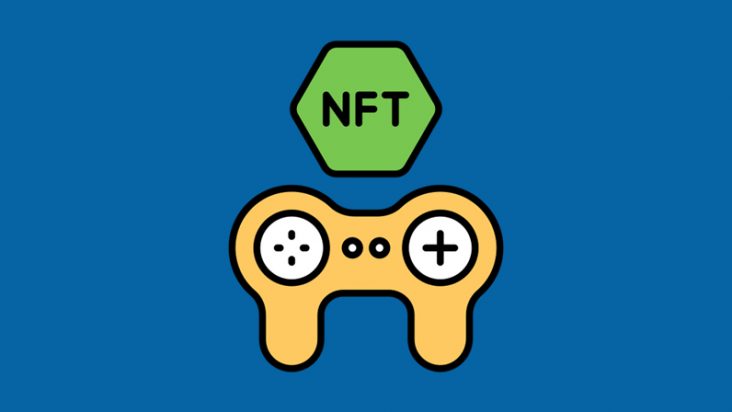![Top-10 Best Selling Games by Nintendo [2024] Top-10 Best Selling Games by Nintendo [2024]](https://data40.com/wp-content/uploads/2024/12/130_header.png)
Nintendo has been a leader in the gaming world for decades, delivering games and franchises that players of all ages love. Known for its creativity and focus on fun, the company continues to make games that stay popular year after year. From classic favorites to exciting new releases, Nintendo’s titles often top sales charts and bring joy to gamers everywhere.
| Name | Genre | Developers | Publishers | Platforms | Release Date | Sales (units) | |
|---|---|---|---|---|---|---|---|
 | Sports Simulation | Nintendo EAD | Nintendo | Nintendo Wii | November 19, 2006 | 82 million | |
 | Kart Racing | Nintendo EAD, Nintendo EPD | Nintendo | Wii U, Nintendo Switch | May 29, 2014 | 64 million | |
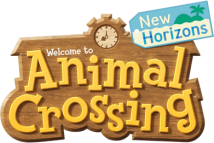 | Life Simulation | Nintendo EPD | Nintendo | Nintendo Switch | March 20, 2020 | 46 million | |
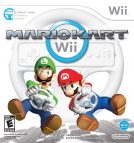 | Kart Racing | Nintendo EAD | Nintendo | Wii | April 10, 2008 | 37 million | |
 | Fighting | Bandai Namco Studios, Sora Ltd. | Nintendo | Nintendo Switch | December 7, 2018 | 35 million | |
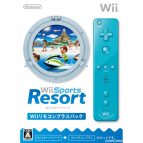 | Sports Simulation | Nintendo EAD | Nintendo | Wii | June 25, 2009 | 33 million | |
 | Action-Adventure | Nintendo EPD | Nintendo | Nintendo Switch, Wii U | March 3, 2017 | 32 million | |
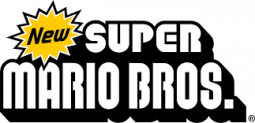 | Platformer | Nintendo EAD | Nintendo | Nintendo DS | May 2006 | 30.8 million | |
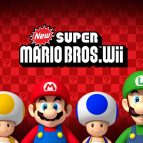 | Platformer | Nintendo EAD | Nintendo | Wii, Nvidia Shield TV | November 2009 | 30.3 million | |
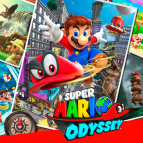 | 3D Platformer | Nintendo EPD | Nintendo | Nintendo Switch | October 27, 2017 | 28 million |
This article looks at the Top-10 Best Selling Games by Nintendo in 2024, featuring games that have made a big impact on players this year. Whether you’re a longtime Nintendo fan or just starting out, these games show the creativity and magic that make Nintendo so special. Let’s explore the adventures and stories that millions of players are enjoying right now!
Top-10 Best Sellers
![Top-10 Best Selling Games by Nintendo [2024]](https://data40.com/wp-content/uploads/2024/12/130-diagram.png)
1. Wii Sports

- Developers: Nintendo EAD
- Publishers: Nintendo
- Genre: Sports Simulation
- Release Date: November 19, 2006
- Platforms: Nintendo Wii
- Sales: 82 million
Wii Sports is a sports simulation game that served as a launch title for the Nintendo Wii console. The game features five sports—Tennis, Baseball, Bowling, Golf, and Boxing—each designed to showcase the Wii’s motion-sensing capabilities. Players use the Wii Remote to perform physical actions, such as swinging a racket or throwing a bowling ball, providing an interactive and intuitive gaming experience. Wii Sports was bundled with the Wii in most regions, making it one of the best-selling video games of all time. The game’s simplicity, accessibility, and focus on multiplayer fun made it a cultural phenomenon and a cornerstone of casual gaming.
Notability:
- Broad Demographic Appeal:
Wii Sports attracted a diverse audience, including non-traditional gamers, families, and seniors, making it a groundbreaking example of accessible gaming for all ages. - Bundled Success:
Bundled with the Wii console, the game contributed significantly to the Wii’s success, demonstrating the power of inclusive gaming to drive hardware adoption. - Cultural Impact:
Its simplicity and physical interactivity turned it into a household name, often featured in mainstream media and public spaces, amplifying brand visibility. - Health and Fitness Association:
The game’s active gameplay promoted movement and exercise, making it a popular tool in fitness and rehabilitation programs, adding a unique angle for health-focused marketing. - Social Gaming Pioneer:
As one of the first games to emphasize motion-controlled multiplayer gaming, Wii Sports paved the way for social gaming experiences, aligning well with family and group-focused marketing campaigns.
2. Mario Kart 8 Deluxe

- Developer: Nintendo EAD, Nintendo EPD
- Publisher: Nintendo
- Genre: Kart Racing
- Release Date: Initial May 29, 2014
- Platform: Wii U, Nintendo Switch
- Sales: 64 million
Mario Kart 8 Deluxe is a premier racing game developed and published by Nintendo for the Nintendo Switch console. Released on April 28, 2017, it serves as an enhanced version of Mario Kart 8, originally available on the Wii U.
Mario Kart 8 Deluxe offers an expansive racing experience, featuring all tracks and characters from the original Wii U version, including previously released downloadable content. The game introduces new characters such as the Inklings from Splatoon, King Boo, Dry Bones, and Bowser Jr. It also revamps the Battle Mode, adding new courses and gameplay styles, enhancing the multiplayer experience. Players can race across a variety of tracks, utilizing unique items and engaging in competitive play both locally and online.
Notability:
- Consistent Sales Performance: Its status as the top-selling Switch game highlights its enduring popularity, making it a reliable title for promotional activities and collaborations.
- Brand Synergy: Featuring iconic Nintendo characters and integrating elements from franchises like Splatoon, the game offers opportunities for cross-promotional marketing within Nintendo’s ecosystem.
- Engaging Multiplayer Experience: The emphasis on both local and online multiplayer modes fosters community engagement, providing avenues for social media campaigns and esports events.
- Innovative Gameplay Features: The introduction of new characters, revamped modes, and additional content keeps the game fresh, allowing for ongoing marketing initiatives tied to updates and expansions.
3. Animal Crossing: New Horizons

- Developer: Nintendo EPD
- Publisher: Nintendo
- Genre: Life Simulation
- Release Date: March 20, 2020
- Platform: Nintendo Switch
- Sales: 46 million
Animal Crossing: New Horizons is a life simulation game developed and published by Nintendo for the Nintendo Switch console. Released on March 20, 2020, it is the fifth main installment in the Animal Crossing series.
In Animal Crossing: New Horizons, players assume the role of a customizable character who relocates to a deserted island after purchasing a package from Tom Nook, a tanuki character. The game features an open-ended design, allowing players to explore the island, gather and craft items, and develop a community of anthropomorphic animals. Players can engage in various activities such as fishing, bug catching, and fossil hunting, with the game operating in real-time, reflecting seasons and events corresponding to the real world.
Notability:
- Cultural Phenomenon: Released during the global COVID-19 pandemic, the game became a social phenomenon, providing a virtual space for interaction, which led to widespread media coverage and cultural relevance.
- User-Generated Content: The game’s emphasis on customization and creativity encourages players to share their in-game experiences on social media platforms, generating organic promotion and community engagement.
- Real-Time Events: In-game events that mirror real-world seasons and holidays create opportunities for time-sensitive marketing campaigns and collaborations.
- Brand Collaborations: The game’s popularity has led to partnerships with various brands for in-game content and events, demonstrating its potential as a platform for innovative marketing strategies.
4. Mario Kart Wii

- Developer: Nintendo EAD
- Publisher: Nintendo
- Genre: Kart Racing
- Release Date: April 10, 2008
- Platform: Wii
- Sales: 37 million
Mario Kart Wii is a kart racing game developed and published by Nintendo for the Wii console. Released in April 2008, it is the sixth installment in the Mario Kart series.
In Mario Kart Wii, players select characters from the Mario universe to race on various tracks, utilizing items to gain advantages or hinder opponents. The game introduced motorcycles alongside traditional karts, offering new gameplay dynamics. It also featured online multiplayer through the Nintendo Wi-Fi Connection, allowing up to 12 players to compete globally. Each copy of the game was bundled with the Wii Wheel accessory, enhancing the motion-controlled racing experience.
Notability:
- Mass Appeal: The game’s accessible mechanics and engaging multiplayer modes attracted a broad demographic, contributing to its substantial sales figures.
- Innovative Controls: The inclusion of the Wii Wheel showcased Nintendo’s commitment to innovative gameplay experiences, appealing to both casual and hardcore gamers.
- Franchise Strength: As a key title in the Mario Kart series, its success reinforced the franchise’s reputation, aiding in the promotion of subsequent titles.
- Longevity: Continued sales years after release highlight its enduring popularity, making it a valuable asset in Nintendo’s portfolio.
5. Super Smash Bros. Ultimate

- Developer: Bandai Namco Studios, Sora Ltd.
- Publisher: Nintendo
- Genre: Fighting
- Release Date: December 7, 2018
- Platform: Nintendo Switch
- Sales: 35 million
Super Smash Bros. Ultimate is a crossover fighting game developed by Bandai Namco Studios and Sora Ltd., and published by Nintendo for the Nintendo Switch console. Released on December 7, 2018, it is the fifth installment in the Super Smash Bros. series.
Super Smash Bros. Ultimate brings together a vast roster of characters from various Nintendo franchises and third-party titles, allowing up to eight players to battle on diverse stages inspired by gaming history. The game features multiple modes, including a single-player campaign, multiplayer battles, and online play. Its expansive character selection, refined mechanics, and extensive content have been praised by both critics and players.
Notability:
- Extensive Character Roster: Featuring characters from various franchises, the game appeals to a broad audience, providing opportunities for cross-promotional marketing.
- Competitive Scene: The game’s popularity in esports and competitive gaming communities offers avenues for event sponsorships and targeted marketing campaigns.
- Diverse Audience Appeal: Its accessible gameplay mechanics attract both casual and hardcore gamers, allowing for versatile marketing strategies.
- Cultural Impact: The game’s widespread acclaim and significant player base make it a prominent title in gaming culture, enhancing brand visibility through association.
6. Wii Sports Resort

- Developer: Nintendo EAD
- Publisher: Nintendo
- Genre: Sports Simulation
- Release Date: June 25, 2009
- Platform: Wii
- Sales: 33 million
Wii Sports Resort is a sports simulation game developed and published by Nintendo for the Wii console. Released on June 25, 2009, it serves as a sequel to the original Wii Sports, introducing new sports and enhanced motion controls.
Set on the tropical Wuhu Island, Wii Sports Resort offers players a variety of 12 sports activities, including Swordplay, Wakeboarding, Frisbee, Archery, Basketball, Table Tennis, Golf, Bowling, Power Cruising, Canoeing, Cycling, and Air Sports. The game utilizes the Wii MotionPlus accessory, enhancing the precision and responsiveness of the Wii Remote, providing a more immersive and accurate gameplay experience.
Wii Sports Resort received generally favorable reviews from critics, with an average score of 82 on Metacritic. Reviewers praised the game’s variety of sports and the improved motion controls provided by the Wii MotionPlus accessory. IGN noted that the controls were impressive and the graphics were superb compared to most Wii games.
Notability:
- Enhanced Gameplay Experience: The integration of the Wii MotionPlus accessory showcased Nintendo’s commitment to innovative gameplay, appealing to both casual and hardcore gamers.
- Broad Demographic Appeal: The game’s diverse range of sports activities attracted a wide audience, including families and non-traditional gamers, making it ideal for inclusive marketing campaigns.
- Strong Sales Performance: With over 33 million units sold, the game’s commercial success underscores its popularity and market penetration, providing a solid foundation for promotional activities.
- Positive Critical Reception: Favorable reviews highlighted the game’s quality and entertainment value, enhancing its credibility and appeal in marketing materials.
7. The Legend of Zelda: Breath of the Wild

- Developer: Nintendo EPD
- Publisher: Nintendo
- Genre: Action-Adventure
- Release Date: March 3, 2017
- Platforms: Nintendo Switch, Wii U
- Sales: 32 million
The Legend of Zelda: Breath of the Wild is an action-adventure game developed and published by Nintendo for the Nintendo Switch and Wii U consoles. Released on March 3, 2017, it is the 19th installment in the Legend of Zelda series.
In Breath of the Wild, players control Link, who awakens from a long slumber to a mysterious voice guiding him to defeat Calamity Ganon and restore the kingdom of Hyrule. The game features an expansive open world, allowing players to explore freely, solve puzzles, and engage in combat using various weapons and abilities. Its non-linear gameplay and emphasis on exploration marked a significant departure from previous titles in the series.
The game received widespread critical acclaim for its open-ended gameplay and attention to detail. It holds a score of 97 out of 100 on Metacritic, indicating “universal acclaim.”
IGN described it as “a remarkable achievement,” praising its vast landscape and the freedom it offers to players.
Notability:
- Innovative Gameplay: The game’s open-world design and emphasis on player freedom set new standards in the industry, appealing to a broad audience and serving as a benchmark for future titles.
- Critical and Commercial Success: Its exceptional sales figures and critical acclaim enhance its reputation, making it a flagship title for promotional activities.
- Franchise Reinvention: By redefining traditional gameplay mechanics, the game attracted both longtime fans and newcomers, expanding its market reach.
- Cultural Impact: The game’s influence extends beyond gaming, inspiring discussions in various media and contributing to its status as a cultural phenomenon.
8. New Super Mario Bros.

- Developer: Nintendo EAD
- Publisher: Nintendo
- Genre: Platformer
- Release Date: May 2006
- Platform: Nintendo DS
- Sales: 30.8 million
New Super Mario Bros. is a side-scrolling platform game developed and published by Nintendo for the Nintendo DS. Released in May 2006, it marked the return of the classic 2D Mario platforming style, introducing new gameplay elements and updated graphics.
In New Super Mario Bros., players control Mario as he embarks on a quest to rescue Princess Peach from Bowser Jr. The game features traditional side-scrolling gameplay with modern enhancements, including new power-ups like the Mega Mushroom, which allows Mario to grow to an enormous size and destroy obstacles. The game comprises eight worlds, each with multiple levels, secret paths, and hidden items, encouraging exploration and replayability.
The game received widespread acclaim for its blend of classic platforming mechanics and innovative features. Critics praised its level design, controls, and the successful revival of the 2D Mario formula. It holds a score of 89 out of 100 on Metacritic, indicating “generally favorable reviews.”
Notability:
- Revitalization of a Classic Genre: The game’s success demonstrated the enduring appeal of 2D platformers, influencing future game development and marketing strategies.
- Broad Audience Appeal: Its accessible gameplay attracted both longtime fans and new players, expanding the franchise’s demographic reach.
- Franchise Reinforcement: The game’s popularity reinforced the Mario brand’s strength, paving the way for sequels and related merchandise.
- Innovative Marketing Campaigns: Nintendo’s promotional efforts highlighted the game’s new features alongside its nostalgic elements, effectively engaging a diverse audience.
9. New Super Mario Bros. Wii

- Developer: Nintendo EAD
- Publisher: Nintendo
- Genre: Platformer
- Release Date: November 2009
- Platform: Wii, Nvidia Shield TV
- Sales: 30.3 million
New Super Mario Bros. Wii is a side-scrolling platformer developed and published by Nintendo for the Wii console. Released in November 2009, it revitalized the classic 2D Mario gameplay with modern enhancements and introduced cooperative multiplayer to the series.
In New Super Mario Bros. Wii, players navigate through eight worlds, each filled with unique levels, enemies, and challenges, to rescue Princess Peach from Bowser and his minions. The game introduced new power-ups, such as the Propeller Mushroom and Penguin Suit, enhancing gameplay dynamics. A notable feature is the simultaneous multiplayer mode, allowing up to four players to cooperate or compete in traversing levels, adding a new layer of interaction and replayability.
The game received widespread acclaim for its engaging level design, innovative multiplayer mode, and successful blend of classic and new elements. It holds a Metacritic score of 87 out of 100, indicating “generally favorable reviews.”
Reviewers praised its accessibility and depth, appealing to both newcomers and veteran players.
Notability:
- Multigenerational Appeal: The game’s combination of nostalgic elements and fresh features attracted a broad audience, from longtime fans to new players, facilitating inclusive marketing strategies.
- Innovative Multiplayer Experience: The introduction of cooperative gameplay in a traditional platformer setting provided unique promotional opportunities, emphasizing social and family-oriented gaming.
- Strong Franchise Performance: As a significant entry in the Mario series, its success reinforced the brand’s prominence, supporting cross-promotional activities and merchandise.
- Sustained Sales Momentum: Consistent sales figures over time highlighted its enduring popularity, making it a reliable title for ongoing marketing campaigns.
10. Super Mario Odyssey

- Developer: Nintendo EPD
- Publisher: Nintendo
- Genre: 3D Platformer
- Release Date: October 27, 2017
- Platform: Nintendo Switch
- Sales: 28 million
Super Mario Odyssey is a critically acclaimed 3D platformer developed and published by Nintendo for the Nintendo Switch console. Released on October 27, 2017, it marks a significant return to the open-ended exploration gameplay reminiscent of titles like Super Mario 64 and Super Mario Sunshine.
In Super Mario Odyssey, players embark on a globe-trotting adventure with Mario and his new companion, Cappy—a sentient hat that allows Mario to “capture” and control various objects and enemies. This mechanic introduces innovative gameplay possibilities, enabling players to utilize unique abilities across diverse kingdoms, each with its own distinct theme and challenges. The game’s open-world design encourages exploration and discovery, offering a rich and immersive experience.
The game received universal acclaim from critics and players alike. It holds a Metacritic score of 97 out of 100, indicating “universal acclaim.”
Reviewers praised its inventive gameplay mechanics, expansive level design, and the successful integration of new features with classic Mario elements. For instance, GameSpot described it as “big, bold, and bursting with new ideas,” highlighting Nintendo’s ability to redefine expectations.
Notability:
- Innovative Gameplay Mechanics: The introduction of Cappy and the “capture” ability provided fresh and engaging gameplay, appealing to both longtime fans and newcomers, and serving as a focal point in marketing campaigns.
- Broad Demographic Appeal: The game’s accessible yet deep mechanics attracted a wide audience, from casual players to hardcore gamers, facilitating inclusive marketing strategies.
- Critical and Commercial Success: Its exceptional sales figures and critical acclaim enhanced its reputation, making it a flagship title for promotional activities and reinforcing the strength of the Mario franchise.
- Cultural Impact: The game’s widespread popularity and innovative design elements contributed to its status as a cultural phenomenon, inspiring discussions across various media platforms and extending its reach beyond traditional gaming audiences.
Adventures That Captivated Gamers
Nintendo’s best-selling games of 2024 show how the company continues to create games that people of all ages love. These titles, from thrilling adventures to creative challenges, highlight the fun and creativity that have made Nintendo a favorite for so many years. Whether you’re exploring new worlds, playing with friends, or revisiting classic series, Nintendo’s games bring joy and connect players everywhere.
Looking to the future, Nintendo’s dedication to innovation and storytelling will keep shaping gaming for years to come. The success of these games proves their unique approach works, and we can look forward to more exciting adventures. For now, these top games remind us why Nintendo remains one of the most loved names in gaming.
The ownership of Pokémon is unique. Unlike most intellectual properties, which are owned by a single entity, Pokémon is co-owned by three companies: Nintendo, Game Freak, and Creatures.
Nintendo's early ventures began in 1974 with the distribution rights for the Magnavox Odyssey in Japan. In 1975, the company launched its first video arcade game, EVR Race, marking its initial foray into game development.
The name "Nintendo" is often interpreted as meaning "leave luck to heaven." While this translation is widely accepted, its historical accuracy is debated. Another theory suggests it means "the temple of free hanafuda," though even descendants of Nintendo's founder, Yamauchi, are uncertain of the name's original intent.


